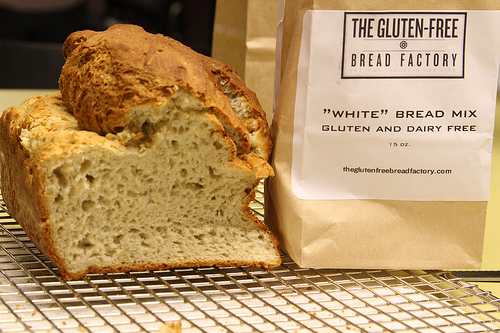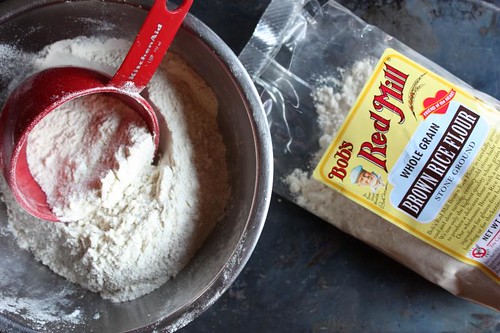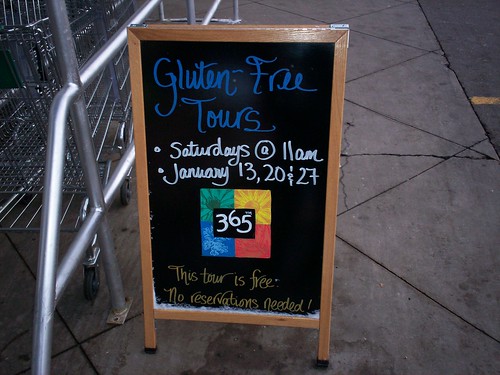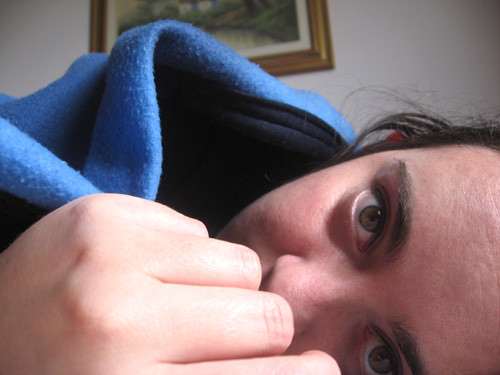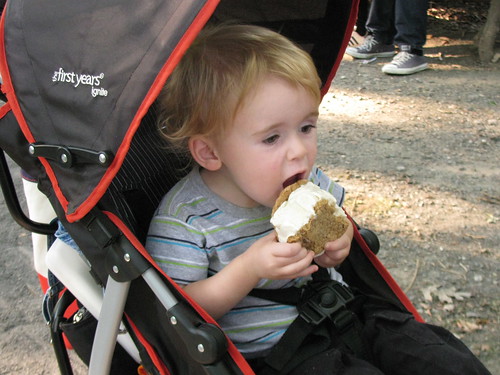An unfortunate incident happened today. I was on FB (as usual), and saw a solicitation for feedback on the page of a well-known gluten-free food brand. The question read: “How do you prepare going over to a friend’s cookout or party when you know there might not be any gluten free options?” I answered, and a stranger decided to bully me for what I posted.
I have severe Celiac disease, diagnosed in 2004, but I had stomach problems for about 10 years prior to finding a name for it. At the time, I was a poor, uninsured actor, and just suffered through bouts of pain and digestive upset (and reactions I do not care to post on this blog), thinking I had a “sensitive stomach.” My first clue as to what might be ailing me came when I tried the Atkins Diet in 2000 – I lost 20 pounds, and my stomach problems decreased dramatically. I stil had occasional bouts, however; but I wasn’t sure what it was from – there didn’t seem to be one category of foods to which I could tie my often violent reactions.
When I finally got health insurance, one of the first docs I saw was a GI specialist. After 4 blood tests (3 of which were negative), a colonoscopy with a biopsy of my small intestine, and other unpleasantries, she sat me down, and said, “You have a disease. And if you never want to feel this way again, you can never have wheat again, as long as you live.” She also gave me a long list of other “mustn’t-eats” and sent me on my way.
I thought, “This is ridiculous – she must be kidding,” and had a beer. Almost immediately, I became terribly ill. Only then did I start to realize there might be something to this. I immediately cut out all potential gluten from my life, and have seen my health improve dramatically since that day.
If you’re unfamiliar with Celiac and gluten intolerance, let me give you a primer. Gluten is a protein found in wheat, rye, barley, malt, and some oats – it’s what makes bread “springy” – and it’s also passed into other foods containing, or created with, these grains. People with a gluten intolerance can’t process it. This takes many forms: from headaches, to depression, to minor discomfort, to full-blown Celiac, to the even scarier Gluten Ataxia. (Google it – very freaky stuff.)
In my case, the reaction is like getting instant food poisoning; shortly after ingesting any amount of gluten, no matter how negligible, my body says, “Everybody out of the pool,” and I lose everything I’ve eaten that day one way or another. If I catch it in time, the resulting stomach cramps may only last about 30 minutes; if I don’t have Immodium or Pepto Bismol handy, the effects could last for hours. (I always have Immodium or Pepto on me. I’ve learned my lesson.)
Stopping the symptoms doesn’t stop the damage, however. Celiac disease destroys the lining of your small intestine, and it takes time on a strict gluten-free diet to rebuild it. People who have Celiac and don’t know it are often malnourished as a result, with distended bellies resembling starving children in third-world countries: with all the villi in their small intestine in disrepair, they have no way to properly absorb nutrients. A host of health problems can follow.
With nine years of gluten-free living behind me now, I feel better than I’ve ever felt in my life. I’m an expert label-reader; if I think a particular food might be gluten-free, I read the label a second time to make sure I’ve not missed anything. I have a card that I give to waiters in restaurants, spelling out the most common gluten-laden ingredients, so that they can show it to the chef and make sure whatever I’m eating is truly gluten-free. My husband prepares almost all our meals, and makes gluten-free gourmet feasts for me nearly every night. (I’m so lucky!!) The rule in our house is that we treat gluten like raw chicken: it’s separated from everything else, and you have to wash your hands and the prep area immediately as soon as you’re done touching it. It’s rare that I get “glutened” now.
It still happens, though. Cross-contamination is my biggest fear. I could be eating a completely gluten-free meal, but if the person who prepared it touched something with gluten in it (was eating crackers, for example, which has happened) and didn’t wash their hands again before touching something on my food, I’ll get poisoned just the same. At Chipotle, I have to make the workers change their gloves, because they’ve been handling flour tortillas; but it’s hit or miss, because they also use those same gloved hands to dig into the cheese and lettuce. I was having lunch with sweet friend of mine who offered to hold a hard-boiled egg steady for me so I could cut it while holding the Munchkin, but she had just been holding her sandwich, and I wasn’t thinking… I had to get a new hard-boiled egg. Salad and food bars are a nightmare – you never know when someone has accidentally used the tongs or spoon from a gluten product in a gluten-free item’s tray… the list goes on and on.
I always say that the only person who has to remember all these rules is me. I have to be responsible for myself. Be vigilant. Ask questions. Not be afraid of offending someone to drill them for every possible ingredient that could be contained in a dish. A waiter came to our table the other day and asked if it was okay if my gluten-free noodles were cooked in the same water as regular noodles. (It’s not – thank goodness he asked!) Our dinner took an extra 20 minutes, but at least I didn’t get sick.
Is all this a pain in the ass? Absolutely. (I’ve recently been informed that some waiters now refer to people like me as “Glutards,” as in, “There’s a Glutard on table 7.” Charming, right?) But you know what’s even more of a pain in the ass (no pun intended)? Missing an entire dinner, or party, because you’re stuck in the bathroom in agony. Which brings me to today’s incident.
My reply to the question “How do you prepare…” was, “Eat first; bring your own snacks.” Someone just ahead of me had written, “Come on there are always veggies and meats off the grill honestly we never have a lot of trouble eating around the gluten free! [sic]” Now that you’ve read what happens to me, you’ll understand why I tagged this person and said (kindly, I thought), “Cross contamination is the biggest enemy! :)” (Yes, the smiley face was included.) Her reply was, “Grilling meats at 360 degrees takes care of any cross contamination! Don’t make more of it than there is! I would never invite you over to eat! You have to be the center of attention with your issues!”
It stung. WTF? I thought. This grown woman (with children, from her profile picture) just basically name-called me on a public forum for attending to my own needs. She doesn’t know anything about me, she doesn’t know the severity of my illness, nor the fact that I hate being the “problem child” in food situations. Never mind the fact that her science is totally incorrect and her provocation was completely uncalled for. My response? “Wow, how unkind. Don’t worry – I would never eat at your house. :)” (Yes, the smiley face was included there, too.)
It sat with me for the rest of the day. Don’t make more of it than there is! I would never invite you over to eat! You have to be the center of attention with your issues! I played with my son and I felt awful inside. What the hell was this woman doing on a gluten-free site if she didn’t need the product? Why lash out at someone she didn’t even know? Someone must have said this to her in the past, so she knew its power, and she wanted it to hurt. This woman was a bully, with Internet anonymity. And she got me.
So, I did what anyone else would have done – I posted the exchange on my FB profile. And my amazing friends leapt into action to make me feel better – defending the fact that I want to call the least amount of attention to my illness as possible, that she has issues she’s taking out on me, that she’s a straight up bitch, etc. The validation made me feel so much better. But clearly it’s still bothering me, because look at the length of this post.
I also went back to the original thread, and saw that several others had come to my defense after her insensitive words to me, provoking more attacks on them, devolving into infantile back-and-forth name calling. I pity this woman’s poor children. Then it dawned on me – that’s why it bothered me so much; not for me, but for the implications to my son.
We don’t know yet if the Munchkin has Celiac; because of the potential for cross-contamination, we’re going to keep him gluten-free until he stops randomly shoving his fingers in my mouth. But if I pass this complicated, potentially painful disease on to him, which I might, he could face the same kind of bullying: Don’t make more of it than there is! I would never invite you over to eat! You have to be the center of attention with your issues! The thought brings tears to my eyes.
There was an episode of a Disney show pulled last week that showed this exact situation: a child, with a gluten allergy, made to look like a sniveling whiner for his dietary inquiries, disdained by adults for not being able to eat what the other kids were eating, ending with laughing children throwing glutinous pancakes in his face and him freaking out. I have friends with children who are Celiac, and others with far more severe, life-threatening allergies, who deal with this kind of cruelty constantly. One recently had to deal with a person joking that they were going to “bring a bowl of peanuts” to an allergen-free event that was being held to raise awareness of the seriousness of childhood allergies – it was like leveling a death threat at her five-year-old daughter and the other attendees.
The woman who bullied me and the others on the gluten-free site has a seven-year-old daughter with a gluten intolerance. In one of the more heated exchanges, she wrote, “Seriously people stop being so melodramatic! Yes someone gave my daughter an ice cream sandwich on the last day of school and we have done the vomiting and runs but if you ask her if she wants another with the same results she responded maybe next week! [sic]” I feel for this poor kid, growing up with a mother who not only doesn’t take the long-term implications of her child’s illness seriously, but ridicules others who do. The girl may just grow up to be the same kind of bully as her mother. I had a discussion with the Munchkin after I saw her craziness, telling him, “I will always take you and your health and well-being seriously. And I’ll make sure to raise you so you won’t treat others like I was treated today.” He doesn’t understand me yet, but he will. Bullying begins at home, and I’ll never let it into mine.
Originally published on InsomniMama
By: Marni Penning Coleman

